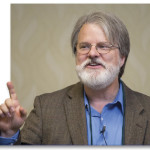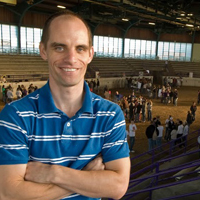Syllabus – Topics and Readings
Week 1 (13 January 2014) – Introduction to the Course
The first lecture introduces the course content, rationale and requirements of the course.
Relevant Book
Kotler, P. & G. Armstrong (2013). Principles of Marketing. Harlow: Pearsons.
Core Readings
Humphreys, L. (2005). “Cellphones in Public: Social Interactions in a Wireless Era.” New Media & Society 7 (6): 810–833.
Additional Readings
Kujovich, Mary Yeager. 1970. “The Refrigerator Car and the Growth of the American Dressed Beef Industry.” The Business History Review 44 (4): 460–482.
Wei, Ran, and Louis Leung. 1999. “Blurring Public and Private Behaviors in Public Space: Policy Challenges in the Use and Improper Use of the Cell Phone.” Telematics and Informatics 16 (1): 11–26.
Related Reading
Selinger, E. (2013). How not to be a jerk with your stupid smartphone. The Atlantic (November).
Week 2 (20 January 2014) – Marketing and Technology
Public debates about technological innovation often talk about the ‘revolutionary’ impact of new technology. There are myriad examples for this phenomenon: “the internet revolution”, the “social media revolution” or the “Twitter revolution” to name but a few. These discussions principally argue that technological developments are shaping how we conduct our affairs, including how we organise our daily interactions as well as how we conduct marketing activities. At the same time, these discussions often ignore the political shaping and relevance of these technologies. This lecture explores the textbook premises of the relationship between marketing and technology. It sheds light on different perspectives on how technology is interwoven with marketing theory and practice.
Core Readings
Constantinides, E. (2006). “The Marketing Mix Revisited: Towards the 21st Century Marketing.” Journal of Marketing Management 22 (3-4): pp. 407–438.
Additional Readings
Bartels, R. (1986). Marketing: Management Technology or Social Process at the Twenty-First Century? In Marketing Management Technology as a Social Process. Edited by George Fisk. New York et al.: Praeger, pp.30-42.
Marx, L. (2010). Technology: The Emergence of a Hazardous Concept. Technology & Culture, 51(3), 561-577.
Möller, K. (2006). “The Marketing Mix Revisited: Towards the 21st Century Marketing by E. Constantinides.” Journal of Marketing Management 22 (3-4): pp. 439–450.
Related Readings
Friedman, T. (2009). Tweeting the Dialectic of Technological Determinism. FlowTV http://flowtv.org/2009/06/tweeting-the-dialectic-of-technological-determinism ted-friedman georgia-state-university-atlanta /
Related Books
Robertson, D., and B. Breen. 2013. Brick by Brick: How LEGO Rewrote the Rules of Innovation and Conquered the Global Toy Industry. Random House Business.
Stone, Brad. 2013. The Everything Store: Jeff Bezos and the Age of Amazon. Bantam Press.
Week 3 (27 January 2014) – Technology, Interaction and Networks
Over the past few years, social relationships are increasingly being described as networks. We find public discourse about networks, social networks, the network economy, network society and others. This lecture begins with a discussion of social interaction before moving on to concepts of market relationships and networks. It will form the basis for subsequent lectures concerned with online communities
Core Readings
Kaplan, Andreas M., and Michael Haenlein. 2010. “Users of the World, Unite! The Challenges and Opportunities of Social Media.” Business Horizons 53 (1): 59–68.
Additional Readings
Bernoff, J., & Li, C. (2008). Harnessing The Power of The Oh-So-Social Web, MIT Sloan Management Review, 2008, 49, pp. 335-342.
boyd, d. (2010). “Social Network Sites as Networked Publics : Affordances, Dynamics, and Implications.” In Networked Self: Identity, Community, and Culture on Social Networking Sites, ed. Zizi Papacharissi, pp.39–58. Abingdon: Routledge.
Ferguson, R., (2008). Word of mouth and viral marketing: taking the temperature of the hottest trends in marketing. Journal of Consumer Marketing, 25(3), pp. 179 – 182.
Watts, Duncan J, and Steve Hasker. 2006. “Marketing in an Unpredictable World.” Harvard Business Review.
Watts, D.J., 1999. Networks, Dynamics, and the Small-World Phenomenon. American Journal of Sociology, 105(2), p.493-527.
Related Books
Papacharissi, Zizi (2008). Networked Self: Identity, Community, and Culture on Social Networking Sites. Abingdon: Routledge.
Rainie, L., & Wellman, B. (2012). Networked: The New Social Operating System. Cambridge, MA: MIT Press.
Week 4 (3 February 2014) – Wessel van Rensburg (RAAK) – Inequality in Networks (working title)
@wildebees
Week 5 (10 February 2014) – Social Networks and Reputation Management
At the same tome as social media and social networking has risen in importance for marketing practitioners new challenges have emerged that for example impact the ways in which companies’ reputation can be impacted by the use of these new media. This lecture draws on a few recent examples to explore some of these challenges to companies’ reputation and discusses ways in which companies might manage their reputation when using social media and social networking sites for their marketing communications.
Core Readings
Hennig-Thurau, Thorsten, Caroline Wiertz, and Fabian Feldhaus. (2013) “Does Twitter Matter? An Investigation of the Impact of Micro Blogging Word of Mouth on Consumers’ Adoption of New Products.” http://papers.ssrn.com/sol3/papers.cfm?abstract_id=2016548
Additional Readings
Gruzd, A., B. Wellman, and Y. Takhteyev. 2011. “Imagining Twitter as an Imagined Community.” American Behavioral Scientist 55 (10): 1294–1318.
Hamilton, K. & P. Hewer. (2010). Tribal mattering spaces: Social-networking sites, celebrity affiliations, and tribal innovations. Journal of Marketing Management, 26(3), p.271-289.
Hennig-Thurau, T., E. C. Malthouse, C. Friege, S. Gensler, L. Lobschat, a. Rangaswamy, and B. Skiera. 2010. “The Impact of New Media on Customer Relationships.” Journal of Service Research 13 (3): 311–330.
Phelps, J. E., Lewis, R., Mobilio, L., Perry, D., & Raman, N. (2004). Viral Marketing or Electronic Word-of-Mouth Advertising: Examining Consumer Responses and Motivations to Pass Along Email. Journal of Advertising Research, 44(4), 333-348.
Rainie, L., & Wellman, B. (2012). Networked: The New Social Operating System. MIT Press.
Sarstedt, M. (2009). Reputation Management in Times of Crisis. Journal of Brand Management. Vol.16, 499-503.
Week 6 (24 February 2013) – Rob Wilmot (BCS Agency) – Start-ups and Valuations
@robwilmot
Week 7 (3 March 2013) – Jadis Tillery – Content Marketing (working title)
@jadistillery
Related Books
Jenkins, Henry. 2008. Convergence Culture: Where Old and New Media Collide. New York University Press.
Week 8 (10 March) – Search and Social Media Marketing
Over the past decade or so two important developments have emerged in the context of Internet Marketing: Search Marketing and Social Media Marketing. The growing economic weight of companies like Google suggest that Search will be one of the important marketing activities over the coming years. It is being used to obtain an understanding of the market as well as for the building of relationships and networks (Marsden and Kirby 2005; Moran and Hunt 2008). The lecture will discuss some of the practices involved in Search Marketing and assess possible problems these practices might raise for the relationship between companies and their customers. It then will turn to Social Media Marketing and explore how social networks like Facebook, Myspace or Jumo are used for marketing purposes, including the design, promotion and distribution of products and services (Penenberg 2009; Scott 2008). The discussion will touch on current debates concerned with viral marketing and online gaming as well as trust and reputation.
Core Readings
Rijnsoever, Frank J. van, Castaldi, Carolina, Dijst, Martin J. (2012). In what sequence are information sources consulted by involved consumers? The case of automobile pre-purchase search, Journal of Retailing and Consumer Services, 19(3), pp.343-352.
Related Books
Marsden, P., & Kirby, J. (2005). Connected Marketing: The Viral, Buzz and Word of Mouth Revolution. Butterworth-Heinemann.
Moran, M., & Hunt, B. (2008). Search Engine Marketing, Inc.: Driving Search Traffic to Your Company’s Web Site. IBM Press.
Pariser, E., 2011. The Filter Bubble: What The Internet Is Hiding From You, Viking.
Week 10 (17 March 2013) – Social and Sustainability Marketing and Technology
The arrival of new technology has also been picked up by market and consumer researchers. For example, over recent years video recording of consumers in shopping and leisure environments has been used to track people’s navigation through isles and gain an understanding of their shopping behaviour. With the arrival of the internet it has been recognised that people’s every ‘click’ can be tracked and followed and the information be used to personalise offers. This lecture critically assesses how technology is used to improve companies’ profits as well as offers for customers and considers some of the practical and ethical implications of these developments.
Core Readings
Brennan, Ross, Stephan Dahl, and Lynne Eagle. 2010. “Persuading Young Consumers to Make Healthy Nutritional Decisions.” Journal of Marketing Management 26 (7-8) (July 9): 635–655.
Related Books
Aaker, J., & A. Smith. (2010). The Dragonfly Effect: Quick, Effective, and Powerful Ways to Use Social Media to Drive Social Change. Jossey Bass.
Peattie, K., & Belz, F. F.-M. (2009). Sustainability Marketing: A Global Perspective (p. 306). John Wiley & Sons.
Striphas, T. (2009). The Late Age of Print: Everyday Book Culture from Consumerism to Control. Columbia University Press.
Vaidhynathan, S., 2011. The Googlization of Everything: (And Why We Should Worry), Berkeley, CA: University of California Press.
Week 10 (24 March 2013) – Marketing, Interaction & Technology


 Helen is a UK National Teaching Fellow and Senior Lecturer and researcher at the University of Salford, MediaCity UK. Her expertise lies in educational and curriculum innovation through social and participatory media, with a focus on creativity and interdisciplinarity. Helen is known for her work on digital identities and cultures, specifically with regards to learning and teaching through participatory media and working across disciplines. As a committed advocate for the development of digital literacies and professionalized online presence in the STEM disciplines, Helen has a particular interest in disciplinary cultures and pedagogical/epistemological beliefs.
Helen is a UK National Teaching Fellow and Senior Lecturer and researcher at the University of Salford, MediaCity UK. Her expertise lies in educational and curriculum innovation through social and participatory media, with a focus on creativity and interdisciplinarity. Helen is known for her work on digital identities and cultures, specifically with regards to learning and teaching through participatory media and working across disciplines. As a committed advocate for the development of digital literacies and professionalized online presence in the STEM disciplines, Helen has a particular interest in disciplinary cultures and pedagogical/epistemological beliefs.
![]() @heloukee | www.flickr.com/photos/h-l-n | http://heloukee.wordpress.com |
@heloukee | www.flickr.com/photos/h-l-n | http://heloukee.wordpress.com |
 In her recent book, Designing Culture: The Technological Imagination at Work (Duke, 2011), Anne Balsamo offers a manifesto for rethinking the role of culture in the process of technological innovation in the 21thcentury. Based on her experiences as an educator, new media designer, research scientist and entrepreneur, the book offers a series of lessons about the cultivation of the technological imagination and the cultural and ethical implications of emergent technologies. In 2012, Dr. Balsamo was appointed the Dean of the School of Media Studies at the New School for Public Engagement in New York. Previously she was a full professor at the University of Southern California in the Annenberg School of Communication and the Interactive Media Division of the School of Cinematic Arts. From 2004-2007, she served as the Director of the Institute for Multimedia Literacy at USC where she created one of the first academic programs in multimedia literacy across the curriculum. In 2002, she co-founded, Onomy Labs, Inc. a Silicon Valley technology design and fabrication company that builds cultural technologies. From 1999-2002, she was a member of RED (Research on Experimental Documents), a collaborative research-design group at Xerox PARC who created experimental reading devices and new media genres. She served as project manager and new media designer for the development of RED’s interactive museum exhibit, XFR: Experiments in the Future of Reading that toured Science/Technology Museums in the U.S. from 2000-2003. Her earlier book, Technologies of the Gendered Body: Reading Cyborg Women (Duke UP, 1996) investigated the social and cultural implications of emergent bio-technologies.
In her recent book, Designing Culture: The Technological Imagination at Work (Duke, 2011), Anne Balsamo offers a manifesto for rethinking the role of culture in the process of technological innovation in the 21thcentury. Based on her experiences as an educator, new media designer, research scientist and entrepreneur, the book offers a series of lessons about the cultivation of the technological imagination and the cultural and ethical implications of emergent technologies. In 2012, Dr. Balsamo was appointed the Dean of the School of Media Studies at the New School for Public Engagement in New York. Previously she was a full professor at the University of Southern California in the Annenberg School of Communication and the Interactive Media Division of the School of Cinematic Arts. From 2004-2007, she served as the Director of the Institute for Multimedia Literacy at USC where she created one of the first academic programs in multimedia literacy across the curriculum. In 2002, she co-founded, Onomy Labs, Inc. a Silicon Valley technology design and fabrication company that builds cultural technologies. From 1999-2002, she was a member of RED (Research on Experimental Documents), a collaborative research-design group at Xerox PARC who created experimental reading devices and new media genres. She served as project manager and new media designer for the development of RED’s interactive museum exhibit, XFR: Experiments in the Future of Reading that toured Science/Technology Museums in the U.S. from 2000-2003. Her earlier book, Technologies of the Gendered Body: Reading Cyborg Women (Duke UP, 1996) investigated the social and cultural implications of emergent bio-technologies.

 Mia Zamora, Ph.D. is Associate Professor of English, Director of the
Mia Zamora, Ph.D. is Associate Professor of English, Director of the 


